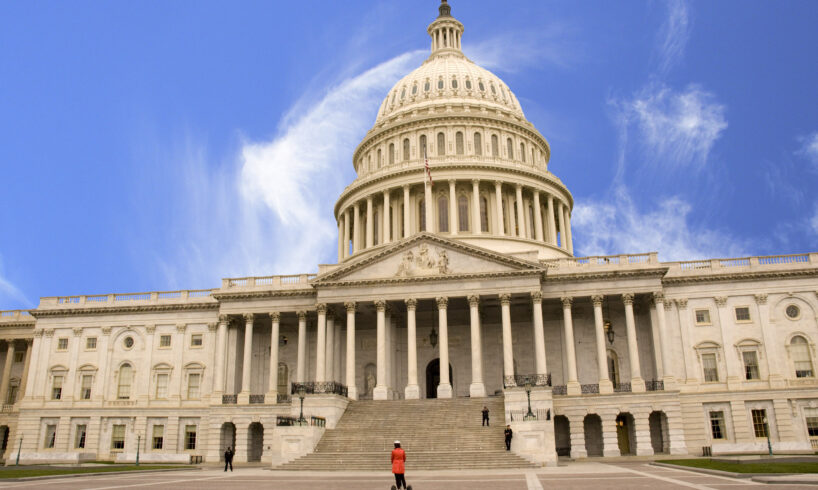
The Women’s Health Protection Act did not advance in the U.S. Senate on Monday.
The bill would have protected the legal right to an abortion by federal statute. According to national media, Senate Republicans, who widely oppose abortion rights, were expected to filibuster the bill. An effort to end discussion and move to a vote on the bill failed on Monday by a vote of 46 to 48.
The U.S. House of Representatives passed the bill in September. Of the three congressional delegates from New Mexico, the two Democrats, U.S. House of Rep. Teresa Lager Fernández, representing New Mexico’s 3rd Congressional District, and U.S. House of Rep. Melanie Stansbury, of New Mexico’s 1st Congressional District, voted in favor of the bill. U.S. House of Rep. Yvette Herrell, a Republican representing New Mexico’s 3rd Congressional District, voted against it.
Tuesday marks the six-month anniversary of the passage of Texas SB 8, which allows citizens or entities to engage in civil lawsuits against providers or others who “aid and abet” an abortion in Texas after six weeks.
During a press call last week to talk about the anniversary, Marc Herron, a lawyer for the Center for Reproductive Rights, said that if the Women’s Health Protection Act became law, it would not stop state abortion bans, such as Texas SB 8. But, a federal law would allow pro-abortion organizations and providers to challenge the Texas’ law in a way that the U.S. Supreme Court has denied that ability in its rulings late last year.
Herron said CRR made its argument before the Texas Supreme Court last week as part of its challenge to Texas SB 8. The U.S. Supreme Court narrowly allowed CRR and others to sue in state district court against medical boards who can discipline a provider for performing an abortion after the Texas law’s six-week gestation limit. But the high court denied providers the ability to sue others, such as the Texas attorney general or Texas state judges. Herron said providers and pro-abortion groups can’t stop Texas SB 8 because of the Supreme Court’s narrow ruling last fall. He said making the right to an abortion a federal statute would give pro-abortion groups and providers a “tool to fight back on state laws like Texas SB 8.”
“Several [U.S. Supreme Court] justices brought up [during oral argument on SB 8] that Congress should act and that’s why we think it should,” Herron said.
Providers from other states said last week that abortion clinics in surrounding states are overbooked and that delays in patient care not only affect Texas abortion patients but local patients as well. Neta Meltzer, regional director, communications and marketing for Planned Parenthood of the Rocky Mountains, said in an email to NM Political Report that Texas patients from September to December of 2021 more than doubled at Planned Parenthood clinics in New Mexico.
She said that represents a 108 percent increase when compared to the previous year.
Meltzer said local patients are finding their local health centers booked out “pretty far” and, in some cases, are driving to locations further away for more timely appointments.
She said Texas SB 8 is pushing local New Mexico abortion patients beyond their home communities to seek care.
Providers and pro-abortion groups have said this is an equity issue as the individuals impacted the most by state abortion bans are communities of color and many abortion patients are already parents.
Ennedith Lopez, an Albuquerque native who is currently based in Washington D.C., said by phone to NM Political Report that regulations and bans against abortion makes her afraid for the future of reproductive healthcare.
“Banning abortion continues violent and systemic forms of oppression. Quality of life and bodily autonomy truly trickles down to a lot of various circumstances. Not everyone has the funds or the community networks or the emotional capacity to travel to other states or countries [for an abortion],” she said.
Lopez said that in response to a call to action on abortion, she and some colleagues put up pro-abortion posters on capitol grounds which led to an encounter she described as “intimidating” with some local law enforcement.
Lopez said that even though abortion is safe and legal in New Mexico, if the Supreme Court overturns Roe v. Wade when it rules on the state of Mississippi’s 15-week abortion ban this summer, the state will still feel an impact. She said there are very few abortion clinics in the state that provide surgical abortion. Medication abortion is available only up to 10 weeks of gestation.
“We need to take into consideration access and resources,” Lopez said, adding that every pregnancy is different, every pregnant person’s circumstance is unique.
“As a young woman, I would like for those services to be available in the future,” she said.
Lopez said that she still holds hope for the future of reproductive healthcare.
“But I think it will take some work from people who live in this country,” she said.
This article was originally posted on Women’s Health Protection Act stalls in U.S. Senate